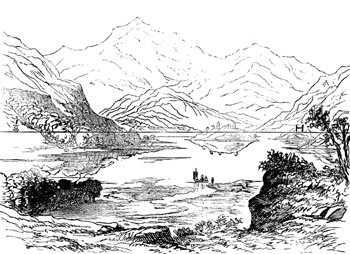 Geh aber nun und grüsse
Geh aber nun und grüsse
Die schöne Garonne
—Friedrich Hölderlin
And the lovely Garonne. Among castles and when it vanishes
in caves without echoes or mirrors.
And still it returns to light, to air.
At dusk its waters work attentively
—great factories of invisibility.
The streams tell it about storms
and about completely quiet, peaceful days,
when time sways on the meadows
like happy schoolboys playing hookey.
And the lovely Garonne. And our life, which weaves
between hills dotted with olive trees,
unprepossessing willows, still their fruit sustains us.
Above it a rosy city rises—at night
it turns grey like the eyes of vagrants.
Finally ships reach the harbor,
trains attain the station terminus
(with its buffet and its stout, good-natured waitress);
life dwindles, and we still don’t know,
we still understand nothing.
And the lovely Garonne parts with the vineyards
and goshawks, who are not entirely bad,
but it doesn’t cry, although the ocean’s
white-green expanse gleams ahead
and even its name will be erased
and the waves will hold only little clumps,
the whispers of a river that is no more.
And it will be said: the lovely Garonne has gone.
But it flows on and on and on.
Translated by Clare Cavanagh